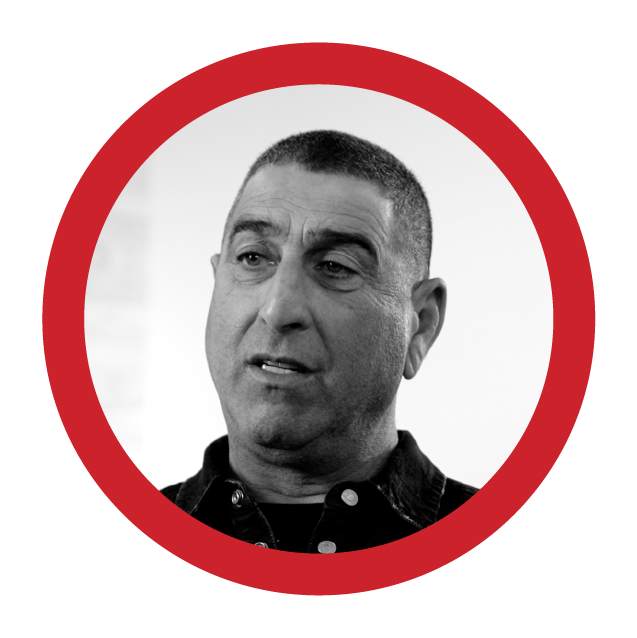
Rami Davidian
“I said to them: ‘I can’t get there right now; it’s swarming with terrorists. But give me a few minutes and I’ll get you out, you have nothing to worry about.”
For Rami Davidian, the morning of Simchat Torah started at home. He woke up early to prepare to go to the synagogue. At 6:45, his plans changed. Alongside the incessant gunfire, Rami’s phone kept ringing. On the other end was his friend Amir, who was extremely worried. A friend’s son was on a farm outside of Patish and needed assistance. “I didn’t ask many questions. A friend asks for something, so I go,” Rami explains.
Upon arriving at the entrance to the village of Patish, he noticed that something was different. Two bicycles were lying on the road. At first, he thought it was a traffic collision, but then he spotted three severed fingers scattered on the road. He placed them on the guardrail and continued toward the young man he was supposed to rescue. He then came across a truck filled with bullet-riddled bodies, with more gunfire in the background. He realized something was going on, but still couldn’t piece together the full picture.
As he got closer to the farm, he encountered a swarm of young people, or “children,” as he described them, terrified and running in all directions. He said it looked “like the Exodus from Egypt.” There were about 300 young people fleeing for their lives from the Nova Festival. He tried to calm them down and direct them towards the village. At the same time, he called his sons-in-law and instructed them to come quickly to rescue the young people.
When he finally reached the location of the young man he had initially set out to find, he discovered not just one, but fifteen. He took them all to his home. Before unloading them, one of the youths told him there was another girl who needed rescuing. He gave him her phone number and requested her location. While driving back, it became clear that Rami’s number had spread like wildfire. Parents of children from the festival began messaging and calling him, asking for help, sending locations, and providing detailed descriptions of the young people who required rescue.
Davidian described rescue after rescue, from the avocado orchards, through the valleys of Be’eri, Magen Junction, and the Nova Festival. In one case, he saw terrorists patrolling and instructed the girls on how to escape without being noticed. In another instance, he convinced the terrorists to release a young woman they were holding, promising them in Arabic that he would “take care” of her. In other cases, he arrived too late.
Although he knew that the rescues endangered his own life, the messages and calls he received convinced him to continue.
In one case, he realized that the parents were directing him to a specific shelter. There, he found the tragic fate of the young people he was searching for: a river of blood and young people matching the descriptions their parents had given him.
The Nova Festival looked like a battlefield. Along the entrance, he saw young people who had been shot, and as he progressed toward the center of the party, he witnessed further atrocities and decided then and there to take care of the bodies. Because of the thick smoke, the terrorists didn’t see how he lowered them from the trees, untied them, and covered them. With the blessing of Shema Yisrael, he wept bitterly for every person he couldn’t save alive. All that night and into the next morning, he continued his personal rescue mission.
It was only on Sunday afternoon that Rami began to encounter soldiers in the field. “I explain to them that I’m a Jew, and they ask me to leave the area as quickly as possible because it’s dangerous. I started laughing and said to them, ‘Now you’re telling me it’s dangerous? I’ve been here for two days.’”
